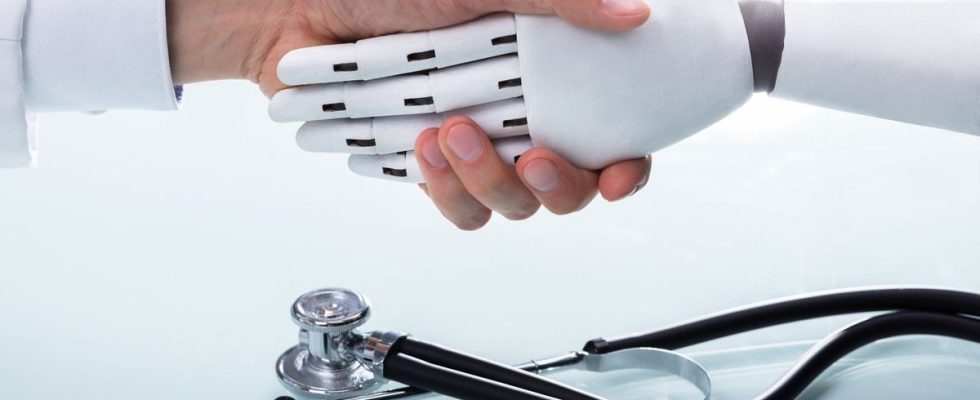Published on
Updated
Reading 2 min.
Generative artificial intelligence (AI) could revolutionize health care by, for example, facilitating the development of drugs or accelerating the detection of diseases, but the WHO believes that more attention must be paid to the risks.
In a document published Thursdaythe World Health Organization analyzes the dangers and benefits of using large multimodal models (LMMs) – a fast-growing type of generative AI technology – in healthcare.
These LMMs can use multiple types of data, including text, images, and video, and generate results that are not limited to the type of data fed into the algorithm.
“LMMs are expected to be widely used and applied in healthcare, scientific research, public health and drug development.“, indicates the WHO.
The organization defines five areas that could use this technology: screening, for example to respond to written requests from patients; scientific research and drug development; medical and nursing education; administrative tasks; and use by patients, for example for symptom review.
Although this technology has great potential, the WHO points out that it has also been shown that these MMLs can produce false, inaccurate, biased, or incomplete results, which could obviously have unfortunate consequences.
“As MMLs are increasingly used in healthcare and medicine, errors, misuse, and ultimately harm to individuals are inevitable.“, notes the WHO.
Tech giants
The document also presents new guidance on the ethics and governance of MMLs, with WHO making more than 40 recommendations for governments, technology companies and healthcare providers on how to take advantage of this technology in complete safety.
“Generative AI technologies have the potential to improve healthcare but only if those who develop, regulate and use these technologies fully identify and consider the associated risks“, underlines WHO chief scientist Jeremy Farrar.
“We need transparent information and policies to manage the design, development and use of LMMs to achieve better health outcomes and to overcome persistent health inequities“, he adds.
The WHO is calling for liability rules to be put in place to “ensure that users harmed by an MML are properly compensated or have other forms of recourse”.
She also highlights that the compliance of LMMs with existing regulations, particularly in terms of data protection, also raised concerns.
Furthermore, the fact that MMLs are often developed and deployed by technology giants also raises concerns and risks establishing the dominance of these companies, according to the WHO.
The organization therefore recommends that LMMs be developed not only by scientists and engineers, but also by healthcare professionals and patients.
The WHO also warns of the vulnerability of MMLs to cybersecurity risks, which could jeopardize patient information and even the reliability of healthcare.
Finally, it concludes that governments should mandate regulatory authorities to approve the use of MMLs in healthcare, and calls for audits to be implemented to assess the impact of this technology.
